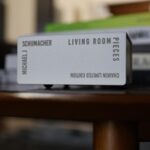End of the Road festival review – engagingly eclectic weekender never fails to surprise | End of the Road festival
‘This is the warmest welcome we’ve ever had,” says Sprints singer Karla Chubb as the Dublin four-piece play End of the Road’s bursting and sweaty Big Top. It’s a feeling echoed throughout the weekend: Bill Ryder-Jones declares EOTR his favourite gig of the year as he plays a sun-drenched Garden stage in a set that is dripping with palpable melancholy as much as it is understated beauty and quiet triumph, especially during an intensely moving and sweeping version of This Can’t Go on.
That enthusiasm from performers comes in response to a crowd who seem perpetually up for it, whether it is the filthy, riotous techno/acid house workout from Paranoid London or Lankum’s transition to headlining stages – a beautiful thing to behold. Playing to a huge audience, including perhaps to their youngest ever fan, a two-month-old baby, they open with a stretched out version of The Wild Rover and build up drones and engulfing atmospherics with slow, steady, yet often brutal intensity. It’s a masterful execution that is as weighty and dense as it is sparse and restrained.
On paper, EOTR is still broadly quite an indie affair. To wit, the resurgent Slowdive’s headline slot is a real triumph. It is at times thunderous, as layers of guitars and melodies stack and collide with a real fizz and crunch, but also incredibly soft, subtle and fluffy at times – and they manoeuvre deftly between these two states. Yet there’s also a lot of eclecticism in the festival’s nooks and crannies. The slick pop and R&B grooves of Nourished By Time add a real glimmer to the ominous grey weather, Ebbb fuse choral falsetto vocals with squelchy electronic beats and rattling drums, the grinding bass-heavy charge of MC Yallah & Debmaster whips the Sunday audience into a frenzy, and the sultry soul strut of Jalen Ngonda radiates joy.
It’s refreshing to experience a festival that, almost 20 years into its existence, still seems ready to evolve and not just be content recycling the same old stuff, yet retains a real sense of identity and personality. In this climate, that is something to be cherished and celebrated. We are awash with identikit events sponsored by the same companies, bringing the same lifeless vibe offered up as extortionate “experiences” packages, while huge companies own and control an enormous chunk of the entire festival (and ticketing) market. By contrast, this level of thoughtful, nuanced, and frequently surprising curation is a sincere pleasure, one reciprocated by artists and audience alike.
